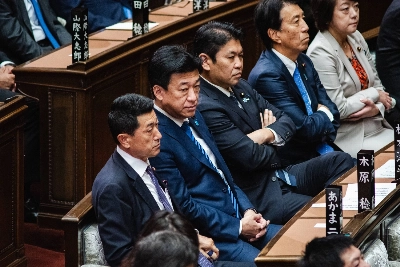The National Police Agency has decided to partially videotape interrogations of suspects. The procedure will first be introduced at the Metropolitan Police Department this summer, and subsequently at police headquarters in Osaka and other large prefectures. Together with an introduction of supervised interrogations in April 2009, videotaping will help to prevent false charges. But the NPA should reconsider the limited scale of the videotaping.
Suspects will be videotaped when investigators read them records of their oral statements and when the suspects sign those records. The NPA hopes this will help prevent doubts over whether signed confessions were voluntary, especially in trials to be handled by lay judges. But interrogations will not be recorded when a suspect refuses to be recorded, and when a suspect incriminates others involved in organized crime and there exists a danger of retaliation.
Many investigators oppose videotaping, saying that the presence of a video camera will make it difficult for them to establish a relationship of trust with suspects, which they regard as a condition for extracting truthful confessions, and for tenaciously questioning suspects over contradictions and irrational statements.
But the prevention of false charges is extremely important. Last year an innocent man in Toyama Prefecture was imprisoned on a rape charge. Investigators built their case based on his confessions, which turned out to be false. The Japan Federation of Bar Association believes partial videotaping is not enough and is calling for the recording of entire interrogations.
In determining whether a confession is truthful and reliable, a full video record is indispensable. Partial recordings will not include critical moments when a suspect switches from denial to confession. The NPA should record interrogations in their entirety, as is done in South Korea, Taiwan, Mongolia, Australia, as well as in many European countries and American states.


















With your current subscription plan you can comment on stories. However, before writing your first comment, please create a display name in the Profile section of your subscriber account page.